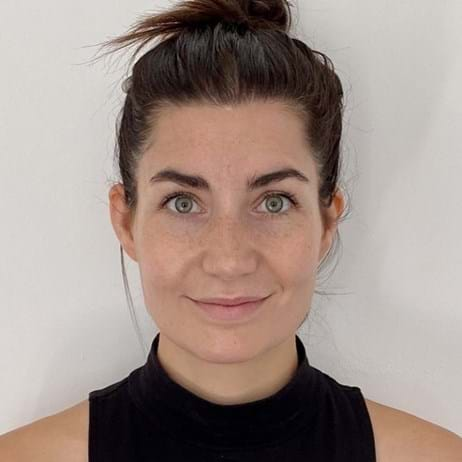10 tips to help your wellbeing this summer
10 tips to help your wellbeing this summer

Lauren Cross
PhD student at the University of Cambridge - Formerly a qualified teacher, Lauren is currently undertaking a PhD at the University of Cambridge (MRC Epidemiology Unit). Lauren’s PhD explores who engages in school-based health prevention research and seeks to identify opportunities for inclusive participation.

Professor Tamsin Ford
Professor of Child and Adolescent Psychiatry at the University of Cambridge - Tamsin is Research Advisor at Place2Be. She is an internationally renowned Child Psychiatric Epidemiologist who researches the organisation, delivery, and effectiveness of services and interventions for children and young people’s mental health.

Students from Northgate High School
Felix Baldwin, Malachi Beckford, Kaci-Jean Franks, Zahraa Islam, Chloe Jones, Maja Roberts, Alex Schroeder-Winrow and Lucy Tye
With more freedom, some (hopefully) great weather, and a little more time on your hands, the summer holidays can be a great time to build your wellbeing.
With this in mind, researchers from the University of Cambridge and students at Northgate High School have come up with 10 top tips to really maximise your summer.
1. Take time out
We know the school year can be extremely hectic and full of expectations, so it’s important you allow yourself a minute to decompress. For some people, this means rest and relaxation, whereas others prefer to reset by doing something they love. Prioritising recovery is important as it’s harder to build healthier habits when you’re feeling stressed.
2. Build a routine
Keeping a regular routine is great for your wellbeing. This can help you establish balance and structure in your day. It will also make it easier to transition back into school mode in September. Try building consistency, whether going on a morning walk to start your day or always having a cup of tea at 3pm.
3. Get active
Physical and mental wellbeing are often linked. This means doing something active can be a great way to boost your mental health, and heading outside into green space can have even greater benefits. Consider walking or cycling instead of going in a car - it’s cheaper and will help the planet to be healthier too!
4. Prioritise sleep
Getting your zzzs in is super important! It can help our bodies and minds recover and reset from the day. Young people are thought to need an average of 8 to 10 hours a night—so make sleep a priority this summer.
5. Stay connected
Networks and communities can help us keep connected. Whether you are a social butterfly or an introvert, making meaningful connections can be great for your wellbeing.
Not sure how to connect with people? Why not start with something you enjoy … and join a club or help out your community this summer? A shared passion means you already have something in common, which can be a great place to start.
6. Try a digital detox
Phones can be a great way of keeping in touch with your friends and finding out what’s going on in the world. But they can also add to social and image pressures and make it difficult to switch off. Why not try a digital detox this summer and aim to reduce your screen time? This doesn’t have to be drastic! It can be as simple as sleeping with your phone under your bed or in another room to remove the temptation of late-night scrolling.
7. Share your thinking
We have lots of different relationships in our lives, but there will be times when we don’t always agree. Whether it’s with your friends or family… good communication can help you navigate difficult situations. The more you can describe your thoughts and feelings, the easier it will be for others to see your point of view.
8. Break work down - don’t put it off
If you’ve been set work to complete over the summer, it can be tempting to ignore it until the last minute. But there’s nothing worse than starting a new school term with work to catch up on (trust us). Try breaking it down into small pieces and doing a small part each week. This approach can help work feel more manageable.
9. Be kind to yourself
We’re often reminded to be kind to each other, but sometimes we forget to be kind to ourselves. You won’t always get it right on the first try, and that’s okay. Everyone’s version of success will look different, so try not to compare yourself to others. Remember to celebrate your journey.
Something didn’t go to plan? No problem! Take a moment and reflect on what you’d do differently next time. All progress (no matter how small) is an achievement. Keep turning up - and one day, you’ll get there.
10. Talk to a professional
Experiencing ups, downs and changes to your wellbeing is normal. However, if you are concerned about how you or a friend or family member has been feeling lately, it’s important to get some extra support.
There are lots of great websites and services out there which can help support you/provide further information. This includes YoungMinds and Shout.
You can also talk to your GP or a trusted adult about how you’ve been feeling lately.
If you need urgent support, visit Place2Be's Get urgent help page.
We hope you have a great summer!
News & blogs

Three charities launch wellbeing video for young carers
Three charities have joined forces to launch a new video aimed at fostering the wellbeing and creativity of young carers.
Read more
“Know Yourself, Grow Yourself”: A look back at Children’s Mental Health Week 2025
During Children’s Mental Health Week 2025, we encouraged people to embrace self-awareness and explore what it means to them.
Read more
Smiley Movement visits Gwyn Jones Primary School for Place2Be’s Children’s Mental Health Week
Smiley Movement and Place2Be visited Gwyn Jones Primary School to see how they're celebrating Children's Mental Health Week.
Read more



